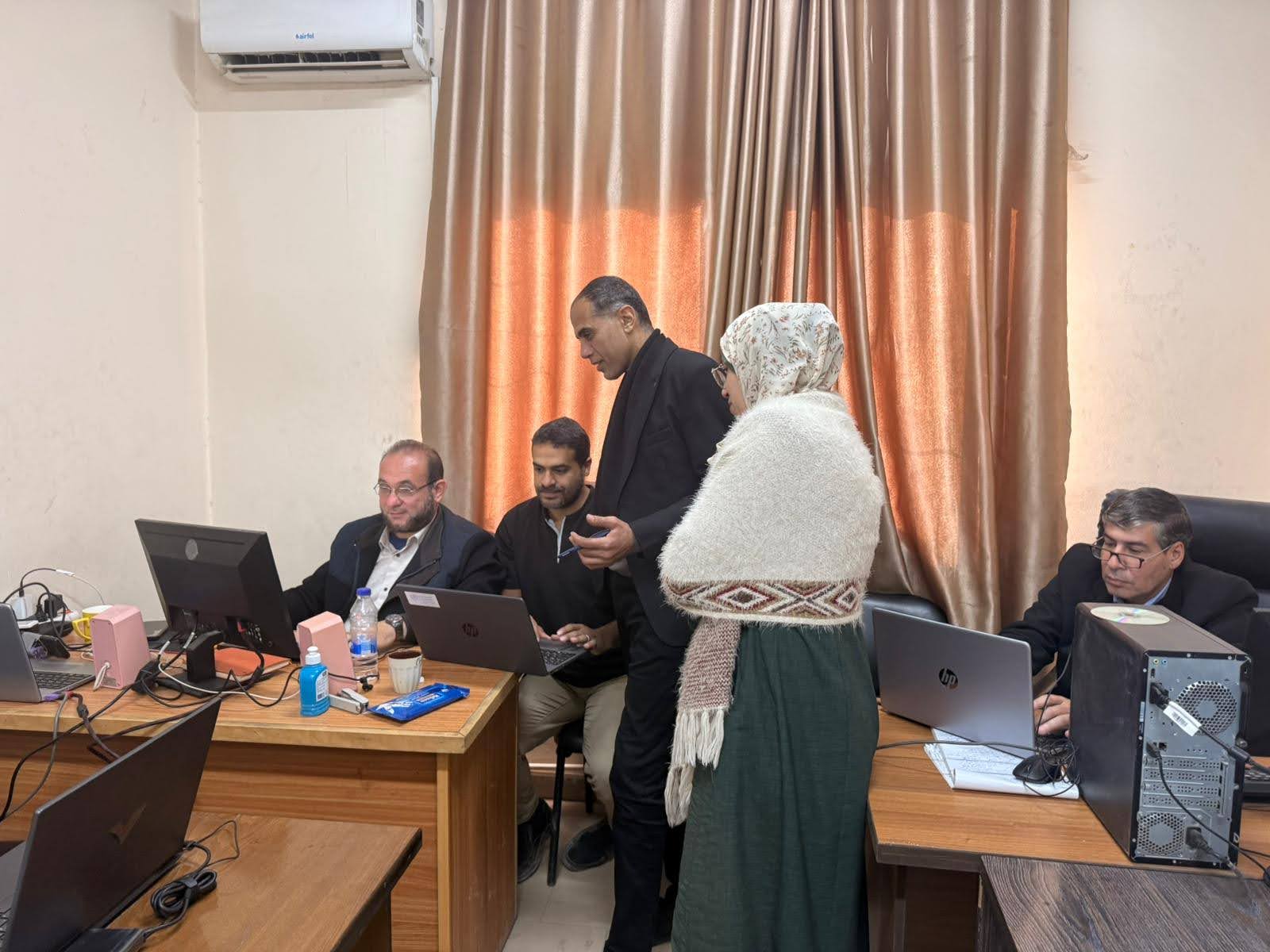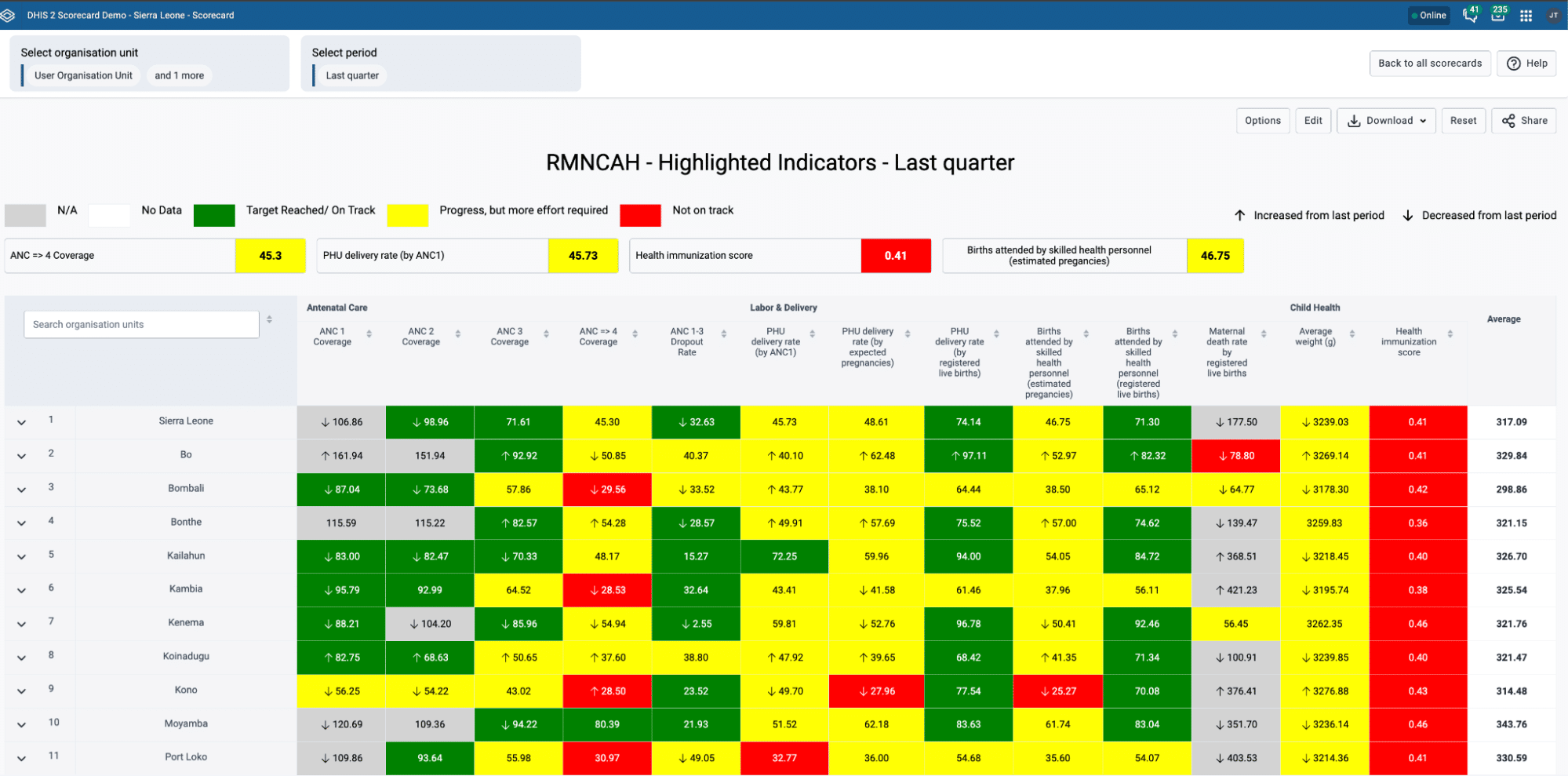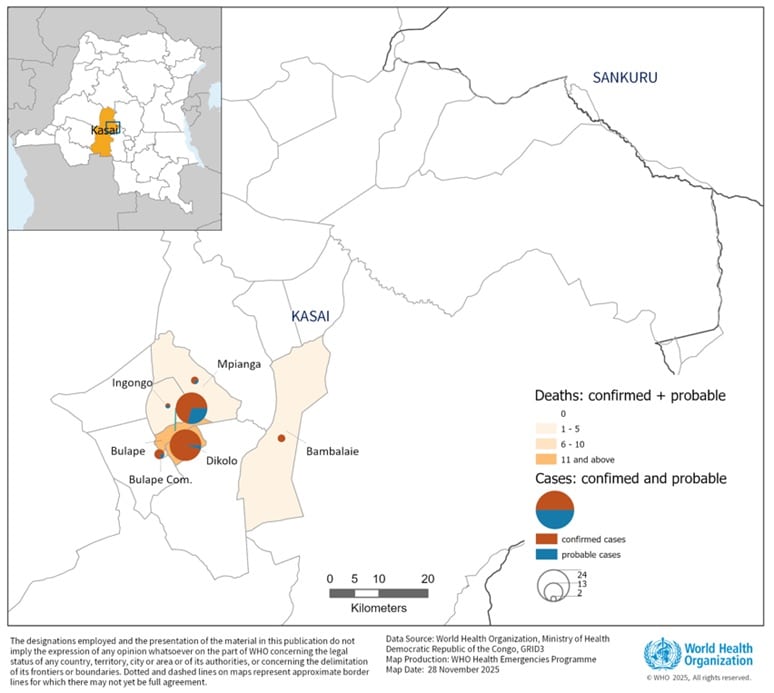The DHIS2 Annual Conference takes place from 15-18 June 2026! Learn more

Strengthening real-time school reporting in Nigeria with DHIS2
Edo State has partnered with Data Science Nigeria to implement a DHIS2-based education management information system (EMIS) in 51 schools, enabling real-time tracking of attendance and school performance.
Timely and accurate data is essential for effective decision-making in education. In Edo State, Nigeria, reliance on paper-based and infrequent school reporting previously led to fragmented, delayed, and missing data on key indicators such as student and teacher attendance. This lack of reliable information created challenges for school oversight, slowed response to operational issues, and hampered effective resource allocation.
In 2023, Edo State implemented a DHIS2-based education management information system (EMIS) that consolidates real-time data from schools in urban and rural areas alike. The system, called EdoEMIS, provides a centralized platform to record and track data for attendance, punctuality, and school resource needs. It also lays the foundation for early-warning mechanisms to detect students at risk of dropping out—an urgent concern, given that 20.9 percent of children of senior secondary school age in Edo were out of school as recently as 2021, according to a survey (MICS 2021).
Using DHIS2 has helped the Edo State Ministry of Education transition from fragmented, delayed reporting to real-time, actionable data for improved decision-making. For example, data reporting timelines that previously spanned several weeks have been shortened to daily updates, significantly improving responsiveness to key educational indicators.
The implemented EdoEMIS platform, built on DHIS2, has delivered transformative outcomes across three core areas:
- Operational Efficiency: Real-time dashboards now monitor daily and weekly attendance trends for over 17,000 students and more than 350 teachers across 51 pilot schools. This immediate visibility into attendance has enhanced institutional responsiveness and systemic efficiency, enabling school leaders to address issues like absenteeism proactively.
- Performance Monitoring: The system enables real-time tracking of academic metrics such as student progression rates. This has allowed the ministry to quickly identify underperforming areas and initiate timely interventions. The system also highlights disparities in educational access and quality across districts and LGAs, fostering more equitable improvements.
- Data-Driven Policy Formulation: By synthesizing comprehensive educational data, the platform empowers evidence-based policymaking. Policymakers can now have access to a near real-time foundation to conduct impact assessments and craft targeted strategies that improve educational outcomes and optimize resource allocation.
From paper to digital—building a foundation for real-time school monitoring
Prior to the EMIS rollout, Edo State schools reporting was done manually and was inconsistent, leading to limited data accuracy and usability. Reports often took weeks to compile and validate, preventing school administrators and government officials from making timely decisions or identifying underperforming schools.
Under its EdoDiDA initiative, Edo State’s data for governance platform, Edo State partnered with local data science organization Data Science Nigeria (DSN) to implement and support the DHIS2-based EMIS, with support from the Gates Foundation. The system was deployed in 51 pilot schools and currently enables daily submission of school-level data through the DHIS2 Capture mobile app or web interface. The system is designed for low-bandwidth environments and requires only 2 to 5 minutes of input time per day, making it accessible even in remote schools with limited internet connectivity.
With the introduction of EdoEMIS, school staff now submit attendance and operational data digitally each day. Teachers use the user-friendly DHIS2 Capture mobile app or web interface, both of which require minimal technical expertise. Because the system is designed to function with limited internet access, schools in rural and underserved areas are able to report data as efficiently as those in urban centers. This shift has significantly improved the speed and reliability of data flows within the education system.
The Unit Head of Data Management at the Ministry of Education in Edo State noted that “historical data practices prioritized data aggregation without actionable analysis and insights, however, the EdoEMIS automation and visualization tools for digitizing and processing flat data, geospatial insights, and interactive dashboards have substantially accelerated decision-making cycles for the ministry.”
Aggregated insights for accountability and action
The EdoEMIS consolidates daily inputs from schools and presents them in interactive dashboards that are accessible to education officials. These dashboards display trends and indicators such as attendance rates, teacher punctuality, and school resource requirements. By providing immediate access to up-to-date data, the system allows for timely interventions, informed planning, and improved oversight of school operations.
Education officials can now respond more quickly to shortages, absenteeism, and facility issues. The EMIS has improved coordination between school officials and state authorities, making it easier to allocate resources where they are most needed. It also enhances transparency and strengthens accountability by ensuring that data is consistently monitored and acted upon.
A scalable model for real-time education data systems
Edo State’s DHIS2-based EMIS demonstrates the potential of open-source platforms to improve public education management, and serve as a model for other education system modernization efforts across the region. By replacing paper reporting with a mobile and web-based system that supports decentralized, real-time data entry, the state has created a more responsive and efficient education data environment.
“Edo State’s approach showcases the power of data-driven governance in education, offering a scalable model for other regions,” said Data Science Nigeria executive Olubayo Adekanmbi, Ph.D., in an abstract submitted to the DHIS2 2025 Annual Conference. The system is now being scaled to schools all over the state with future plans for the implementation of the SEMIS system for individual-level students, staff and schools tracking.
Other regions and Ministries of Education can adopt this model to improve education data management and governance. The platform supports low-bandwidth connectivity, integrates easily with existing systems, and facilitates timely, evidence-based decision-making. Using DHIS2’s adaptable infrastructure has enabled Edo State to unify school-level reporting and establish a scalable foundation for continued improvements in educational outcomes.


